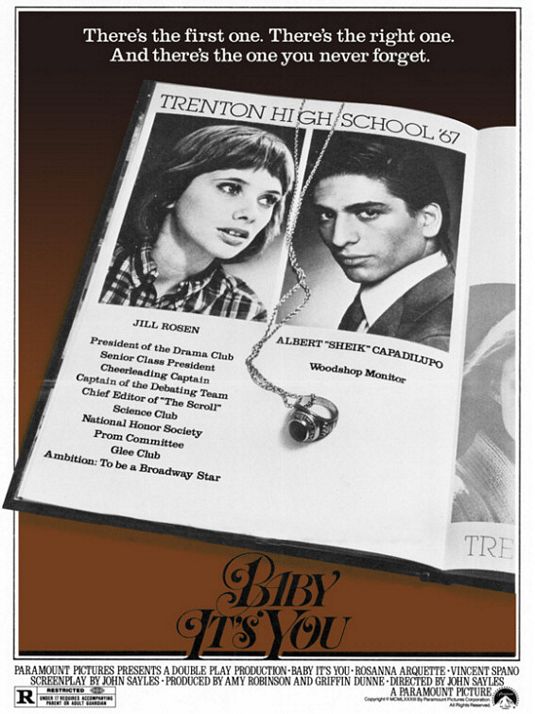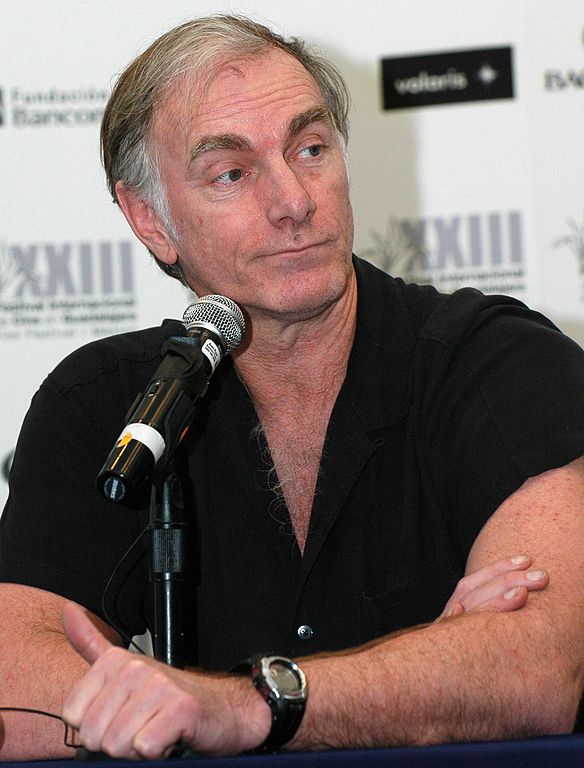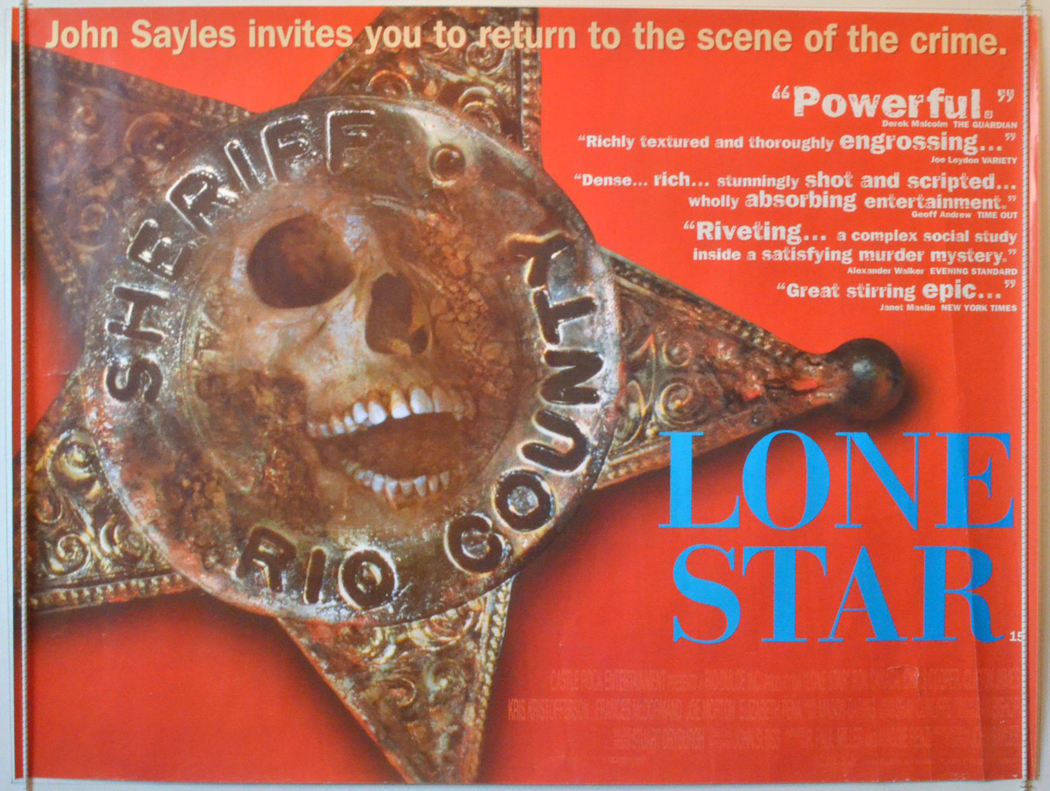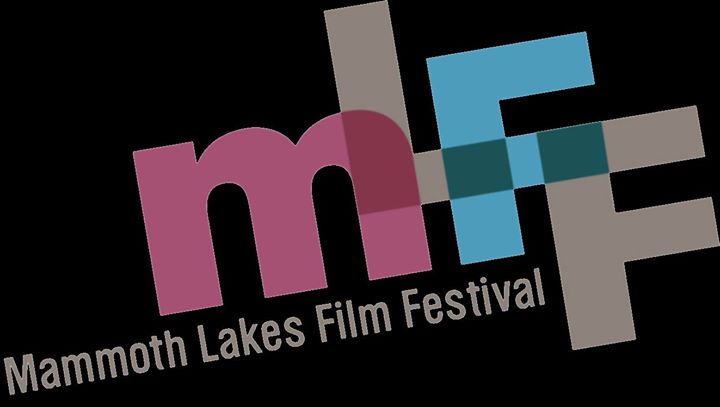Hello ladies and gentlemen, Muldoon here with a lovely chat with a man I deeply respect - a man who has no doubt influenced the film world as we all know it, Mr. John Sayles. While I've not contributed to the site in several weeks, busy with my own projects, the opportunity presented itself to chat with Mr. Sayles as he is being honored with the Sierra Spirit Award at The Mammoth Lakes Film Festival next weekend. I simply had to jump at the opportunity. The fest runs from May 24th to May 28th and features a wide array of films, from retrospectives like UP IN SMOKE with Tommy Chong in attendance, to film's like SPACE DETECTIVE, a film which looks to be a fun ride. Last year, the festival honored Director Joe Dante with their Sierra Spirit Award, and I had the privilege to pick his brain as he was doing press. It simply feels right that John Sayles, a wildly respected Filmmaker, Screenwriter, and Actor be given the award. He's in solid, if not familiar company. Provided AICN's Papa Vinyard had the pleasure of picking Sayles's brain just over a year ago, and I had roughly 15 minutes myself to ask questions - I'll be honest, I was wildly selfish with my questions, poking at answers I was curious about myself. So if at the end of this interview you feel "Gah! Muldoon, total missed opportunity to not ask him about _____!" Not only do I agree, but I hope to one day sit down with the man and pick his brain much more in depth. You could write a book chronicling this man's accomplishments, so if you've not yet read through Vinyard's interview - I implore you to check it out!
John will be in attendance at the Mammoth Lakes Film Festival Saturday 5/27 for the special screening of his 1983 film BABY IT'S YOU, starring Rosanna Arquette and Vincent Spano. Spano will be presenting Sayles with the Sierra Spirit Award.
First off congratulations with the Sierra Spirit Award at Mammoth Lakes. I know Joe Dante got it last year and so you're in very good, if not wildy familiar company.
Thank you! Yeah.
Given they are screening your film BABY IT'S YOU, one of your first few projects as Director, how do you think your work on Roger Corman's films helped you in that role? How do you come to direct that film?
Basically there's quite a few lessons that I'd learned working with Roger and seeing other directors, Joe Dante and [Jonathan] Demme, who you know just passed and was a friend of ours. And Joe and a bunch of the other people who worked with Roger... When I first started writing there, it was seeing what could be done without capital. Just with hard work and really good planning and some good improvisation and stuff like that. And then what really did just cost money and so if you were... if you knew you were going to work on a movie that you have very small budget on and you have to go back to the script and make it a more do-able movie and that's something that I still have to do. I think the last 3 or 4 movies that I made were self-financed and some very low budget. The last one, we had four weeks to shoot it! Working for Roger was kind of invaluable if you're going to shoot a fairly ambitious movie in four weeks, and feel good about the work that you do...
How I got to make BABY IT'S YOU - Amy Robinson and Griffin Dunne were producers that got in touch with me after they saw RETURN OF THE SECAUCUS SEVEN. They were both actors who had just started to produce. They produced a play and then they had produced HEAD OVER HEELS, a movie. They were interested in making a story based on some of the things that Amy went through when she was in high school in New Jersey in 1966 and we kind of bonded together and started from there. I wrote the script and then started taking it around with them. It was originally at one studio, who were going to make it and then they kind of chickened out at the last minute. Clare Thomson, who was one of the first female executives in Hollywood, liked it so much that even though it wasn't her studio doing it anymore, she made a bunch of phone calls for us and Amy and Griffin kept shopping it around and we landed it at Paramount.
It was kind of last minute. "Is it going to happen?" "Is it not going to happen?" "Are they going to approve our casting?" "Are they not going to approve our casting?" The shooting was really fun, really exciting. Editing up to a certain point was really fun and exciting and then I had a pretty big fight with the studio over the the cut. Then it ended up being the cut that I wanted, and I feel good about the movie, but the editing part of it was not my favorite part.

You no doubt are absolutely one of the "go-to" guys when it comes to screenwriting. You've done everything; made your own films, written numerous stories, and act! I'm curious, money aside, when you are approached to write, like "Hey, John we need your help writing this script..." What are things that you have to check off in your own head to say, "Yeah, this is a thing I want to do."
The main thing is, "Is there a movie that I think I would like to see that could be made out of this project?" "Is it a genre that I like?" "Is the tone of the film something that I can get behind?" And so money sometimes is not the biggest object. It is how I make a living as a screenwriter for hire, but more often, it's, well, "What's the basic material and what's the basic story?" "Where do they want to go with it?" That could be a book that they're adapting or a newspaper article, or I might be the third writer on the project and they have no ideas of what direction they want the project to go in.
Sometimes I just say, "You know, I can't help you here." Some of that's just "I don't have an idea of how to help you here," and sometimes "It's where you're going and I don't want to go," or "I wouldn't be very good at that." A lot of it has to do with what I want to see. That doesn't mean that I don't always love the movies that are made from my screenplays or if we agree with how they were made, but that's true of every screenwriter.
Given you're quite busy with writing for hire, creating your own films as a Writer/Director, and occasionally acting; what do you do to step away from that stuff? When you need to clear out your head, and say, "Okay, I need to just not think about work." What's something that you do that has nothing to do with movies, that helps bring you back down to earth?
For one thing I have long periods of unemployment. I have years that go by without getting the money to make a film, so the movie business steps away from me, I don't have to step away from it, sometimes. (Laughs) During the last two Writer's Guilds strikes, I wrote novels. My last novel that I wrote was a thousand pages long. It's one of the best things that I ever did, so that was fun to do. I play basketball, I watch movies, I actually watch more movies when I'm not working on something than when I am. Just for keeping your head clear and on the project that you're on, sometimes it's a little more confusing if you're watching a lot of stuff. Travel, you know. Lots of stuff.
I think it's so different than it must've been when people were studio employees and you had to literally punch in in the morning and spend the day in the writer's room whether you were working or not. It's much more of "feast and famine" kind of job these days. I often have two or three things going at the same time, so I might be doing the polish on one movie, I might be doing the first draft on another, or a TV show, and I might have a novel going - which one I work on that day will usually depend on "Is something due right away?" or "What do I feel like working on.?" So it's a nice situation in that way, in that I have no problem jumping from one world to another. One project with a very different tone from another, even on the same day.
That's incredible, to be able to switch your brain from one project to the other in the same day. I am curious, just because you have written so much stuff, have you ever taken on a job, not really felt 100 percent confident about it when you turned it in, and then later came back to watch the film in a different way and possibly enjoyed it? Let me rephrase that. Have you ever done something you weren't necessarily proud of but then later you kind of realized, "Wait a second, that is actually not a terrible thing. I just made something damn good, but couldn't appreciate it at the time." Anything like that?
You know, of the things that I've written for other people, the first time you see it and I think most writers feel this, it's like, "Oh God they didn't use that," or "They fucked up that scene," or "Why'd they cast that person?" The first time you see a movie you wrote but didn't direct is a bit of a shock. Then you see it again, maybe right away, or maybe down the line, and then I think you're usually a little more able to appreciate stuff. You're over the fact that it's not exactly what you wrote. In fact, you probably forget exactly what you wrote by the time you see it the second time. There have been no scripts where I've totally reevaluated and said, "Oh, that was actually good," and I didn't think it was any good.
I've had jobs where I've gotten to a certain point where I've just said to the employers "they're not firing me," I'm saying, "You know the direction you want to go in, I won't do that well. I can't ... I either can't do that well or I just, I'm not going to do it well, because I just think that it's such a mistake, the direction you're going in. You should definitely get another writer." Some of those get made. And I've ... more than, probably more than I've asked for credit on films, I've asked, when it comes to adjudication, when it comes to credits arbitration, I've said, "Just leave me out of this. This has been rewritten to the point where it doesn't have anything to do with what I've put into it anymore."
That's very humble and very fair to not go after the credit.
Well it's not so much humble, it's also if you think it's no good you don't want your name on it! Sometimes. But other times, it really is, for instance, I worked on what eventually became Jurassic World.
(Laughs) That's actually my next question.
Yeah, I did work I thought was really good on it, but at the time I was doing it, their concept was very very different than the previous movies. When they finally made it, years had gone by, and I think they felt like, "Oh, we could go back to the Island!" They were right. It was a perfectly good movie. Well made movie, and the audience who went to it, most of them, if they had seen the previous movies, they'd seen them on TV, or maybe not seen all three of them.
So the timing of it meant that it was appropriate for them to do a more traditional story. But that's just the ... Those are the breaks of the business that... I wrote a movie once that Bill Forsyth did, and I had written it as an original, never felt like I needed to direct it myself. It sat around for seven or eight years, and then when he finally took it on, he said, "So what are all these disco references?" (Laughs) I said, "Well, it was written maybe eight years ago, not yesterday, so I'll do a rewrite and ease some of the disco out of it."
JURASSIC WORLD and your script for JURASSIC PARK 4 absolutely are two different directions. As a huge JURASSIC fan, I would have loved to see yours, but wildly enjoyed JURASSIC WORLD. (Laughs) Given what you do for a living and what your craft is, what you care about, obviously, what screenwriters or filmmakers out there right now do you find yourself saying, "Oh, I'm going to pay attention to that fellow." Who out there is John Sayles a fan of?
There are people you always like to check in on. I'm always interested to see what Mike Leigh comes up with. He does very different movies, one movie is not that same as another. I'm fascinated with the way that he works and because I was an actor and I like actors, the role that the actors themselves play in creating the thing but also in inspiring him, you know, something like HAPPY GO LUCKY, which I don't think, if he hadn't had that actress or known of that actress, he might not have even thought to do that project. I'm always interested, it's great that Ken Loach is still getting to make movies. Jane Campion, I'm always interested to see what she does. I'm always interested in seeing what the Coen Brothers do. And there are political filmmakers... I'm always interested when Oliver Stone or Spike Lee decide to make some trouble where trouble needs to be made, see what they come up with. But also it's just people have an individual voice, where I feel like, "I'm going to see a movie that I haven't seen before." There are filmmakers where, they're really good genre filmmakers, but you're very likely to feel like, "Well, that's kind of... I've seen that. John Ford made a version of that, or John Huston made a version of that, this is the modern take on it," or whatever.
But there are other filmmakers where, even if you don't like the movie, you've definitely never seen it before.
A lot of times, when I'm talking to an individual at your level, which does not happen often... Dennis Muren, Joe Dante, "big dogs" in my eyes... It's a gut question for me to ask, "What advice would you give to your younger self?" I don't want to ask that again today. I do want to say, or ask, do you ever stop after all of your success and reflect upon what the younger John Sayles would tell you today? What advice the kid from the late 70s, early 80s would say, "You should do it this way," or "Stop thinking about X, Y, and Z!" What advice would your younger self give to you now, after achieving all you have accomplished?
I think the younger one would say, "Sorry you're not as free." Cause you know, I've certainly got to work with a lot of talented people and they like the movies that we made back then, but we were really lucky to get to make them. The climate to make anything with fellow professionals for somebody like me today is so much worse than it was back then. That was a time when the Sundance Film Festival, when I was first making movies, first of all it didn't exist when I first started, but they might get ten to forty movies submitted for that platform. Now they get three thousand.
Oh yeah.
There were maybe six to seven independent distributors. There's a few more now, but back in those days they actually might give you two to three million dollars to make a movie. That's almost unheard of today. You go find your own money and then "we'll look at it, and if we like it maybe we'll distribute it, maybe we'll give you an advance, or maybe we won't." It's a much tougher world in terms of getting a movie financed and getting it distributed than it was when I started out. The other filmmakers who started back then are still trying to make movies.
Well sir, I beleive they're telling us that's all the time we have today. Again, congratulations with the Sierra Spirit Award, that's really cool. Enjoy the festival, and thank you very much for your time.
Thanks Mike. Bye.
There we have it, ladies and gents! I'm unsure how much I'll be able to write in the next few months, but a chance to speak with Sayles is something you make time for. I hope you enjoyed the quick chat. If you're in Northern California anywhere near Mammoth Lakes - think about checking the fest out. I'll see you folks later!
- Mike McCutchen
"Muldoon"
Mike@aintitcool.com
![]()



